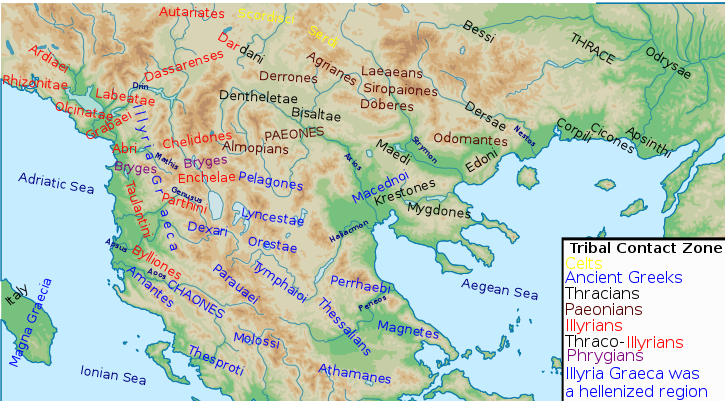Έκαταῖος δ’ ἐν δευτέρῳ περιηγήσεως εἰπών περί Αἰγυπτίων ὡς ἀρτοφάγοι εἰσίν ἐπιφέρει τάς κριθάς ἐς τό πῶμα καταλέουσιν. ἐν δέ τῇ τῆς Εὐρώπης περιόδῳ Παίονάς φησι πίνειν βρῦτον ἀπό τῶν κριθῶν καί παραβίην ἀπό κέγχρου καί κόνυζαν.
Hecataeus in the second description said about the Egyptians that they are bread eaters and says that they grind barley into a drink. In the voyage through Europe he says that the Paeonians drink beer from barley and parabiēn from millet and fleabane/inula.
Background
Athenaeus, again, talks about beer. In this section, he quotes several early sources in which beer is mentioned.

Commentary
Two things: Egyptians drink beer (surprise!) and the Paeonians (the region to the north of Greece) drink two types of beer – one from barley (brutos) and one from millet (parabiēn). The millet beverage, parabiēn, is not mentioned in any other text. It is possible that this was a local, Illyrian term for millet/fleabane beverage (Nelson 2001, 64).
The mention of fleabane or inula provides us with another adjunct that was used in ancient beer. Both names are used to refer to various species in the Asteraceae family, flowers found throughout Europe. Two closely related varieties are the common fleabane and the inula helenium or elecampane, which are ascribed medicinal properties. This text says that the sap of the fleabane (found in the tissues) has a bitter and astringent quality. Perhaps, the addition of this herb produced similar effects as hops by helping to balance the sweetness of the brew with bitterness.
Author’s Note
Hecataeus of Miletus (ca. 550-476 BCE)
Greek historian and geographer. These Greek historians really like their brews!
Bibliography
Nelson, M. 2001. “Beer in Greco-Roman Antiquity.” Ph.D. dissertation, U. of British Columbia.
Image Sources
Adapted from: Wikimedia Commons (Inula Helenium: Cbaile19, Public Domain)
NB. This post has been slightly updated on February 21st, 2017 to reflect BCS’ ongoing research regarding the definition of κόνυζαν.
15 Comments Add yours